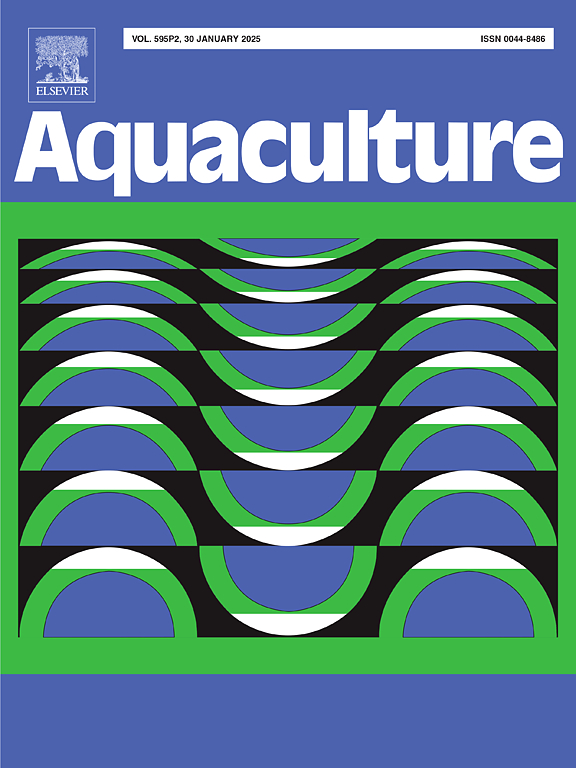Comparing the modulatory effect of fennel powder and fennel extract nanoparticles on growth, immunity and histopathological changes of Nile tilapia
IF 3.9
1区 农林科学
Q1 FISHERIES
引用次数: 0
Abstract
A sixty-day feeding trial was performed to assess the impact of fennel powder (“FP) and fennel extracts nanoparticles (FNPs) in enhancing the growth performance, antioxidant capacity. The immune system's ability to fend against P. putida infection was also assayed. Nile tilapia (n = 225, 27.15 ± 0.12 g) were segregated into five equal groups in triplicates (45 fish/ group, 15 fish/ replicate). The initial (control) group received diet devoid of any feed supplements, whereas the second (FP 0.5) and third (FP 1) ones received diet enriched with 0.5 % and 1 % fennel powder (FP) respectively. The fourth (FNPs 0.5) and the fifth (FNPs 1) groups received a basal diet enriched with 0.5 % and 1 % (FNPs) respectively. At the end of feeding trial; fifteen fish from each group, were intraperitoneally (I/P) inoculated with P. putida. The challenged fish were monitored for fourteen days, where mortalities, behavioral modification and clinical signs were documented. Results depicted that, FP and/or FNPs- enriched groups showed a substantial improvement in all growth indices compared to the control group. The immunological response biomarkers involving lysozyme (32.07 μg/mL), NO (47.67 μmol/L), and IgM (40.26 μg/mL) were uniquely improved in the FNPs 1 group when compared to their values in the control group(16.37, 34.88, and 26.28, respectively). In addition, FNPs 1group also displayed major improvement in the activity of hepatic oxidative stress biomarkers: CAT (22.93 U/G), SOD (9.17 U/g), and GSH (2.92 mmol/g). Following the challenge with P. putida, the highest survivability percentage was noted in FNPs 1 (88.66 %), followed by FNPs 0.5 (73.33 %), and then, FN1 (66.66 %). Eventually, it could be concluded that FNPs, particularly, with higher concentrations could be used as a promising dietary supplement to enhance growth and immunological response as well as to safeguard Nile tilapia against P. putida infection.
求助全文
约1分钟内获得全文
求助全文
来源期刊

Aquaculture
农林科学-海洋与淡水生物学
CiteScore
8.60
自引率
17.80%
发文量
1246
审稿时长
56 days
期刊介绍:
Aquaculture is an international journal for the exploration, improvement and management of all freshwater and marine food resources. It publishes novel and innovative research of world-wide interest on farming of aquatic organisms, which includes finfish, mollusks, crustaceans and aquatic plants for human consumption. Research on ornamentals is not a focus of the Journal. Aquaculture only publishes papers with a clear relevance to improving aquaculture practices or a potential application.
 求助内容:
求助内容: 应助结果提醒方式:
应助结果提醒方式:


